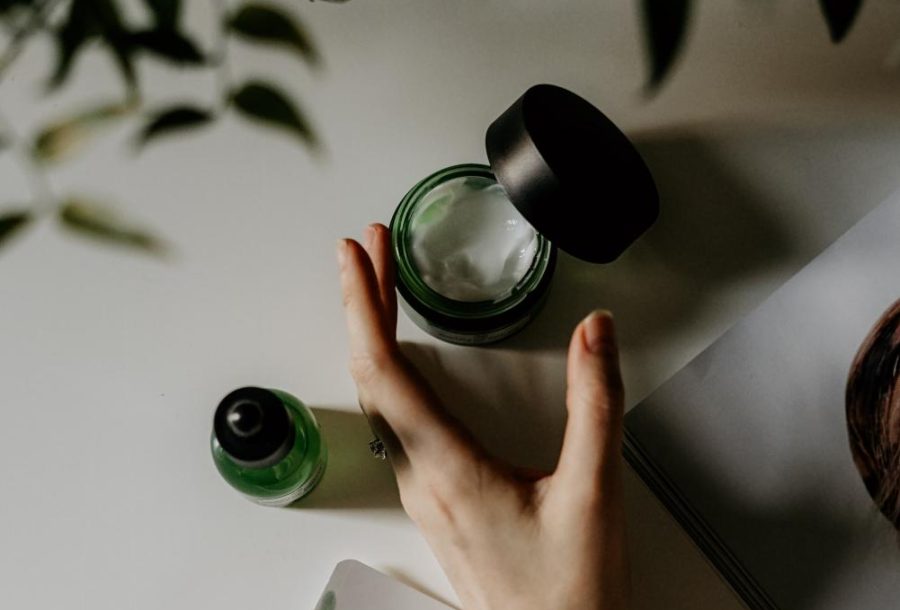Tips for Treating Acne
October 10, 2022
Acne is a skin disorder characterized by the inflammation of hair follicles and oil glands. Teenagers and young kids are more susceptible to this skin condition due to fluctuations in hormones. In fact, more than 85% of teens across the globe experience some form of acne. While there isn’t an exact cure for acne, there are several ways to reduce your skin irritation and prevent it from getting worse.
Washing your face
First and foremost, make sure to wash your face at least once a day and after sweating. Doing this will reduce the amount of oil and dirt buildup on the skin, keeping breakouts at bay. A gentle cleanser once a day can also help remove excess dead skin cells from your pores. Finding a cleanser specific to your skin type would be ideal. However, it’s also important to note the unwanted side effects of overwashing your face.
According to board-certified dermatologist Mona Gohara, “Overwashing can lead to the stripping of the skin barrier, which results in red, itchy, dry, irritated skin that feels ‘squeaky clean.’” If your skin feels tight, that is its SOS to add in moisture, stat.”
Anytime your skin is irritated or dry it is more prone to breakouts, so make sure to pay close attention to changes in your skin when washing your face multiple times a day.
Ingredients
Check the ingredient list! Certain ingredients, especially oils, are known to clog the pores and worsen acne. Some common chemicals known to cause acne include Argan oil, Acetylated Lanolin, and Algae extract which you can find in any products you apply to your face. You might want to look through your makeup bag or general skincare routine and eliminate products that might be irritating your skin. SkinCarisma is a website that allows you to analyze the ingredients in your products and identify which ones might be causing your breakouts.
Pimple patches
Pimple patches not only protect your pimples from extended sun exposure, but they also drain them in the process. When using these patches on a regular basis, practice proper hygiene by replacing them regularly and applying them to clean, dry skin. Some people find these patches to be effective while others, mainly those with cystic acne, a form of acne that occurs when bacteria clogs the skin’s pores resulting in large pus-filled pimples, find them ineffective due to their inability to deeply penetrate the skin.
According to Dr. Lavanya Krishnan, a dermatologist,” They’re aimed at treating the superficial kind of acne, like pus-filled bumps, blackheads, and whiteheads. It’s unlikely these patches penetrate to the level that will be able to help cystic acne.”
Moisturize
Believe it or not, keeping your skin hydrated is essential to reducing inflammation of the skin. Dry skin produces more oil and is therefore more prone to breakouts. Using a non-comedogenic moisturizer is better when combating acne since it doesn’t clog your pores.
Arcadia High School freshman Kyana Enoch commented on how moisturizing your skin impacts acne.
”I do think moisturizing impacts my skin a lot because about a year ago I didn’t moisturize that often and it really showed on my face,” Enoch said. “It was covered in acne. But now, since I moisturize every day, the acne has started to disappear.”
Talk to a Dermatologist
Don’t be afraid to contact a dermatologist! A dermatologist can provide personal advice and suggest lifestyle changes to accommodate your skin condition. Reaching out to a dermatologist early on can prevent scarring and permanent skin damage. If this seems like a viable option, consider talking to your parents about scheduling an appointment with a local dermatologist.
If you are someone dealing with acne don’t be ashamed: It’s a very common skin condition. The important thing to recognize is your ability to make lifestyle changes that can help ease skin inflammation and lead to healthier skin. Or, for more severe cases, discuss treatment options with your doctor.
Photo courtesy of Toa Heftiba

